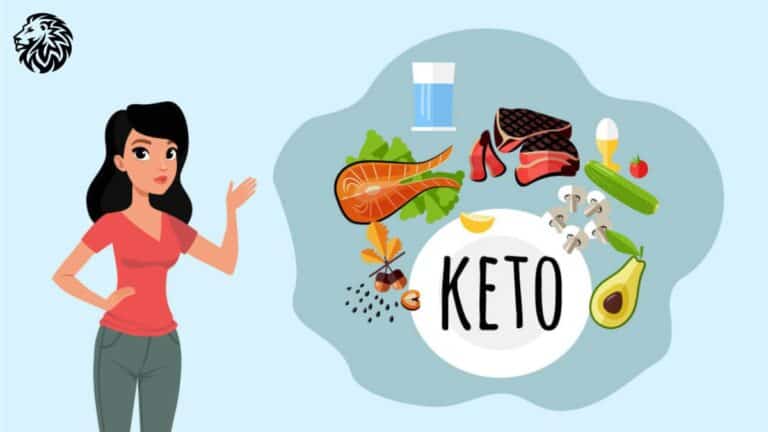The ketogenic diet, commonly known as the keto diet, has surged in popularity over recent years, gaining attention as a fast-track method for weight loss and health optimization. At its core, the keto diet revolves around a high-fat, moderate-protein, and extremely low-carbohydrate eating plan. This diet drastically reduces carbohydrate intake, substituting it mainly with fats, a shift that pushes the body into a metabolic state called ketosis. In ketosis, the body becomes incredibly efficient at burning fat for energy. This fat-burning state also turns fat into ketones in the liver, which can supply energy for the brain.
Ketogenic diets can cause significant reductions in blood sugar and insulin levels, along with the increased ketones, all of which have health benefits. Originally developed in the 1920s to treat epilepsy in children, the diet has evolved, becoming a popular weight loss and lifestyle regimen. Celebrities, athletes, and everyday individuals tout its effectiveness, not only for shedding pounds but also for its potential benefits in improving overall health, mental clarity, and physical energy. Despite its popularity, the keto diet is also a subject of debate among nutritionists and health experts, leading to a discourse on its long-term efficacy and safety.
Understanding the Keto Diet

Definition of the Ketogenic Diet
The ketogenic diet is a high-fat, moderate-protein, and very low-carbohydrate eating plan designed to put the body into a state of ketosis. Unlike typical diets that rely on carbohydrates for energy, the keto diet focuses on the consumption of fats, which constitutes around 70-80% of the daily caloric intake, proteins accounting for about 20-25%, and carbohydrates making up just 5-10%.
Brief History of the Diet
The ketogenic diet has its roots in the early 20th century, where it was initially developed to mimic the effects of fasting and treat epilepsy, particularly in children who didn’t respond to available medications. Its effectiveness in reducing the frequency of seizures was first documented in the 1920s. However, the introduction of antiepileptic drugs in the 1940s saw a decline in its use. It wasn’t until the late 20th and early 21st centuries that the keto diet resurfaced, this time gaining popularity as a quick and effective weight loss strategy, and as a means to address various other health conditions.
Explanation of Ketosis and How the Diet Achieves This State
Ketosis is a metabolic state where the body uses fat, rather than carbohydrates, as its primary source of energy. When carbohydrate intake is drastically reduced, the body depletes its glucose reserves, its usual energy source. This shortage forces the body to break down fats into ketones, compounds that can be used as a secondary energy source. The liver produces these ketones from fatty acids, which serve as a fuel source, particularly for the brain. Achieving and maintaining ketosis is the central concept behind the keto diet.
Typical Foods Consumed on a Keto Diet
The keto diet emphasizes the consumption of specific types of foods while restricting others. Foods that are staples in a ketogenic diet include:
- Fats and Oils: Natural fats like butter, olive oil, and coconut oil; and high-fat sauces like mayonnaise.
- Proteins: Meat (beef, pork, poultry), fish and seafood, eggs, and some full-fat dairy products.
- Low-Carbohydrate Vegetables: Leafy greens like spinach and kale, and other non-starchy vegetables like broccoli, cauliflower, and zucchini.
- Nuts and Seeds: Almonds, walnuts, flaxseeds, and chia seeds.
- Cheese: High-fat cheeses like cheddar, mozzarella, brie, and blue cheese.
Foods that are generally restricted on the keto diet include high-carbohydrate items like bread, pasta, rice, cereals, and high-sugar foods like soda, candy, and most fruits. The precise balance of these food groups helps to maintain ketosis and achieve the desired health and weight loss goals associated with the ketogenic diet.
Pros of the Keto Diet

Weight Loss: One of the most cited benefits of the keto diet is its effectiveness in promoting weight loss. The science behind this involves the body’s metabolism shifting from using carbohydrates to fats as its primary energy source. This process of burning fat for energy, known as ketosis, can lead to a reduction in body fat percentage. Furthermore, the high-fat content of the diet is thought to increase satiety, leading to a natural reduction in calorie intake. Several studies have shown that people on a ketogenic diet tend to lose more weight compared to those on a low-fat diet, even when they are allowed to eat as much as they need to feel full.
Blood Sugar Control: For individuals with diabetes, especially Type 2, the keto diet has been found to have significant benefits in controlling blood sugar levels. The reduction in carbohydrate intake leads to a decrease in blood sugar spikes and an overall lowering of blood sugar levels. This can lead to a reduced need for insulin and other diabetes medications. However, it is crucial for diabetics to consult with healthcare professionals before starting the diet, as adjustments to medication may be necessary.
Improved Brain Function: There is emerging evidence that the keto diet may have neuroprotective benefits and improve brain function. Ketones, produced during ketosis, provide an efficient source of energy for the brain. Some studies suggest that this can lead to improved cognitive function, enhanced mental clarity, and even potential benefits in neurological disorders like epilepsy, Alzheimer’s, and Parkinson’s disease. However, more research is needed to fully understand the impact of the keto diet on brain health.
Heart Health: The keto diet’s impact on heart health is somewhat complex. On one hand, the diet can lead to improved levels of HDL (“good”) cholesterol due to its high fat intake. Some studies also show a reduction in blood pressure and triglyceride levels, which are risk factors for heart disease. However, it’s important to note that these benefits depend on the types of fats consumed; healthier fats like avocados, nuts, and olive oil are recommended over saturated fats.
Reduced Hunger and Improved Satiety: A major advantage of the keto diet is its ability to reduce hunger and increase feelings of fullness. This is attributed to the satiating effect of proteins and fats, and the stabilizing effect of the diet on blood sugar levels, which can reduce hunger and cravings. This aspect can make it easier to adhere to the diet and maintain a calorie deficit for weight loss. Additionally, as the body adapts to using fat for energy, it becomes more efficient in accessing its own fat stores, which can lead to a decrease in overall hunger levels.
Cons of the Keto Diet

Nutrient Deficiency: One of the major concerns with the keto diet is the risk of nutrient deficiencies due to the exclusion of certain food groups. By drastically reducing carbohydrate intake, the diet limits the consumption of fruits, vegetables, and whole grains that are vital sources of vitamins, minerals, and fiber. This can lead to deficiencies in essential nutrients like vitamin C, potassium, magnesium, and fiber. These deficiencies can have various health implications, including weakened immune function, digestive issues, and poor bone health. Supplementing with multivitamins or focusing on nutrient-rich keto-friendly foods can help mitigate this risk.
Keto Flu: When starting the keto diet, many people experience the “keto flu,” a collection of symptoms that can include fatigue, headache, irritability, nausea, difficulty sleeping, and constipation. These symptoms are a result of the body adapting to a low carbohydrate intake and entering a state of ketosis. While these symptoms are usually temporary, lasting a few days to a couple of weeks, they can be quite uncomfortable and may discourage some from continuing with the diet.
Long-term Health Risks: There are potential long-term health risks associated with the ketogenic diet. These may include liver and kidney problems, due to the diet’s high fat and protein content which can put extra strain on these organs. Additionally, there’s a concern about the potential increase in the risk of heart disease over time, especially if the diet is high in saturated fats. The long-term impact of severely limiting carbohydrate intake is still a subject of ongoing research, and experts advise caution and regular medical supervision for those on a long-term keto diet.
Restrictiveness and Sustainability: The keto diet is highly restrictive, eliminating many foods and entire food groups, which can make it challenging to sustain over a long period. This restrictiveness can lead to social isolation or difficulties when dining out or attending social events. The diet’s strict nature may also increase the risk of disordered eating patterns in some individuals. For many, the keto diet may be more suitable as a short-term solution rather than a long-term lifestyle choice.
Impact on Exercise Performance: The impact of the keto diet on exercise performance is a debated topic. While some studies suggest that a ketogenic diet can be beneficial for endurance athletes, others show a decrease in performance, especially in high-intensity, short-duration exercises. This is likely due to the reduced availability of carbohydrates, which are the most efficient fuel for high-intensity activities. Athletes or individuals with high physical activity levels should carefully consider their diet’s impact on their energy levels and performance and may need to adjust their carbohydrate intake accordingly.
Who Should and Shouldn’t Consider the Keto Diet

Groups That May Benefit from the Keto Diet
- Individuals with Obesity or Seeking Weight Loss: The keto diet is often effective for rapid weight loss, making it appealing for individuals with obesity or those trying to lose weight.
- People with Type 2 Diabetes: Due to its ability to lower and stabilize blood sugar levels, the keto diet can be beneficial for people with Type 2 diabetes.
- Epilepsy Patients: The keto diet has a long-standing history of helping to manage epilepsy, particularly in children who do not respond to traditional medication.
- Some Neurological Disorders: There is emerging evidence suggesting that the keto diet may benefit certain neurological disorders like Alzheimer’s disease and Parkinson’s, although more research is needed.
Groups For Whom the Diet Might Be Harmful or Less Effective
- Pregnant and Breastfeeding Women: Due to the need for balanced nutrition and sufficient calories, the keto diet is generally not recommended for pregnant or breastfeeding women.
- Individuals with Kidney Disease: The high protein content of the keto diet can exacerbate kidney problems, so those with kidney disease should avoid it.
- People with a History of Eating Disorders: The restrictive nature of the keto diet can trigger disordered eating patterns in susceptible individuals.
- Athletes in High-Intensity Sports: Athletes who engage in high-intensity sports might find the keto diet limiting due to the low availability of quick-burning carbohydrates, which are essential for short-duration, high-intensity activities.
- People with Certain Metabolic Disorders: Individuals with disorders that affect fat metabolism should avoid the keto diet.
- Individuals on Certain Medications: Those on medications for diabetes or high blood pressure, for example, might need to adjust their medication if they choose to follow the keto diet and should consult a healthcare provider before starting.
General Considerations
It is essential for anyone considering the keto diet to consult with a healthcare provider, particularly if they have underlying health conditions or are on medication. A healthcare provider can provide personalized advice and monitor any potential adverse effects, ensuring that the diet is approached in a safe and effective manner.
Expert Opinions and Studies

Research Studies on the Keto Diet
- Weight Loss and Metabolic Health: Numerous studies have supported the effectiveness of the keto diet in rapid weight loss and improvements in metabolic health markers like blood sugar and insulin levels. A study published in the New England Journal of Medicine found that participants on a low-carb diet, similar to the keto diet, experienced more significant weight loss compared to those on a low-fat diet.
- Diabetes Management: Research in the Journal of Diabetes Research and Clinical Practice indicated that the keto diet could help control HbA1c levels, a key marker for long-term blood sugar management, in Type 2 diabetes patients.
- Neurological Benefits: A body of research, including studies in the journal Epilepsy & Behavior, has shown the effectiveness of the keto diet in reducing seizures in children with epilepsy. Emerging research also suggests potential benefits for other neurological conditions, though more studies are needed for conclusive evidence.
Expert Opinions on the Keto Diet
- Supportive Views: Many health experts recognize the keto diet’s benefits for weight loss, improved blood sugar control, and its potential in managing certain neurological conditions. They often emphasize the importance of following the diet under medical supervision and ensuring adequate nutrient intake.
- Critical Views: Some experts express concerns regarding the long-term sustainability and potential health risks of the keto diet. They point out the risk of nutrient deficiencies, the potential negative impacts on heart health due to high saturated fat intake, and the possibility of exacerbating kidney problems. There’s also a concern about the ‘yo-yo’ effect, where individuals regain weight after stopping the diet.
- Moderate Views: A number of health professionals take a middle ground, recognizing the potential benefits of the keto diet for specific individuals while cautioning against its long-term use and emphasizing the need for a personalized approach to dieting. They often suggest a modified keto diet with a slightly higher carbohydrate intake for long-term sustainability.
Differing Viewpoints Among Health Professionals
The keto diet continues to be a topic of debate among health professionals. Some advocate for its use as a therapeutic diet for certain conditions, while others caution against potential risks and emphasize a more balanced dietary approach. The common ground among most professionals is the recommendation for individual assessment and the need for medical supervision, especially for people with pre-existing health conditions or those taking certain medications.
Personal Stories and Case Studies

Success Stories
- Case Study 1: Weight Loss Achievement: Sarah, a 35-year-old woman, turned to the keto diet to lose weight after struggling with obesity for years. Within six months, she lost 40 pounds and reported improved energy levels and reduced cravings. She credits the diet with not only helping her lose weight but also teaching her healthier eating habits.
- Case Study 2: Improved Diabetes Management: John, a 50-year-old with Type 2 diabetes, adopted the keto diet on his doctor’s recommendation. He experienced a significant improvement in his blood sugar levels, leading to a reduction in his medication. John reported feeling more in control of his diabetes and overall health.
Challenges Faced
- Case Study 3: Difficulties with Sustainability: Emily, a 28-year-old, tried the keto diet but found it difficult to sustain due to its restrictiveness. She experienced initial weight loss but struggled with social dining and missed eating a variety of fruits and whole grains. Eventually, she transitioned to a more balanced diet.
- Case Study 4: Experiencing Keto Flu and Nutrient Deficiency: Mark, a 40-year-old, experienced significant ‘keto flu’ symptoms like headaches and fatigue in the initial weeks of the diet. He also faced challenges in maintaining a balanced nutrient intake, which led to him feeling lethargic and eventually abandoning the diet.
Balanced Perspectives
- Case Study 5: Mixed Results: Lisa, a 32-year-old, experienced quick weight loss and improved mental clarity on the keto diet but also faced challenges in maintaining a balanced diet. She found the diet beneficial in the short term but decided to incorporate more carbohydrates into her diet for long-term sustainability.
- Case Study 6: Professional Athlete’s Experience: Alex, a professional athlete, experimented with the keto diet during his off-season. While he noticed some benefits in body composition, he experienced a decrease in high-intensity performance. This led him to modify the diet to include more carbohydrates around training sessions.
These personal stories and case studies illustrate the varied experiences people have with the keto diet. They highlight not only the potential benefits but also the challenges and the importance of a personalized approach tailored to individual health needs and lifestyle.
Conclusion
The ketogenic diet has garnered significant attention as a means for weight loss and managing certain health conditions. Its major pros include effective weight loss, improved control of blood sugar levels, potential benefits for brain health, and reduced hunger and increased satiety due to its high-fat content. These benefits make it an attractive option for individuals looking to lose weight, those managing type 2 diabetes, and people seeking to improve certain aspects of their health.
However, the keto diet also comes with notable cons. These include the risk of nutrient deficiencies due to the exclusion of certain food groups, the initial discomfort of the keto flu, potential long-term health risks such as liver and kidney strain, challenges in maintaining the diet over a long period due to its restrictiveness, and possible impacts on exercise performance, especially in high-intensity sports.
For someone considering starting the keto diet, it’s crucial to weigh these pros and cons carefully. It’s important to approach the diet with a clear understanding of one’s health goals and any existing health conditions. Considering the restrictive nature of the diet, it’s advisable to plan meals thoughtfully to ensure a balanced intake of nutrients. Transitioning gradually and staying hydrated can help mitigate the symptoms of the keto flu.
Most importantly, consulting with a healthcare provider or a dietitian before beginning the keto diet is essential. Professional guidance is particularly important for individuals with pre-existing health conditions, those on medication, pregnant or breastfeeding women, and individuals with a history of eating disorders. A healthcare provider can offer personalized advice, help monitor health progress, and adjust the diet as necessary to ensure it is safe and effective for the individual’s specific needs.







